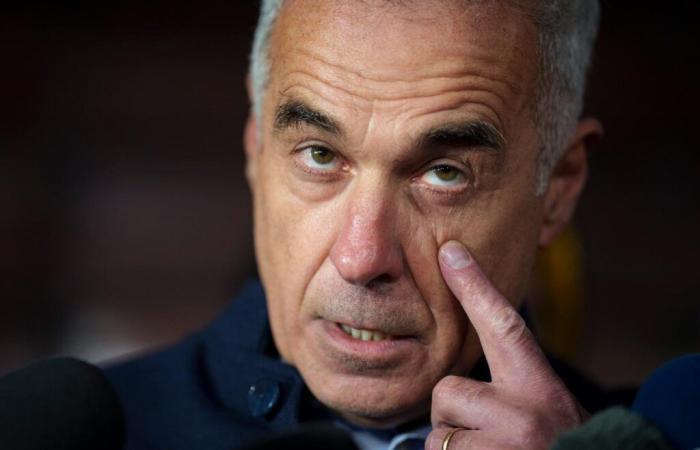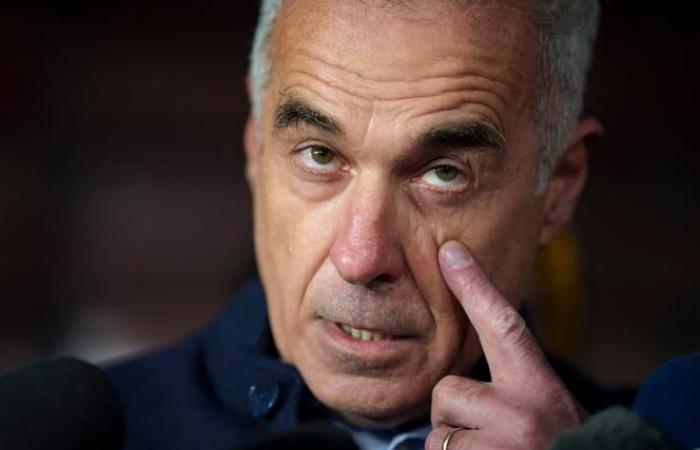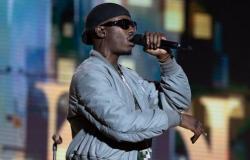The social network TikTok has granted “preferential treatment” to Calin Georgescu, pro-Russian far-right candidate who came first in the first round of the Romanian presidential election, the Romanian Supreme Council of National Defense (CSAT) said in a press release on Thursday, November 28 after a meeting.
Calin Georgescu, who is not named, “benefited from massive exposure” on the platform, “who did not label him as a political candidate”according to a press release from the presidency. What had “an impact on the final result” of the ballot and requires the establishment of “emergency measures”.
The Romanian Internet regulator called on Wednesday for the suspension of TikTok in the country, which votes again on Sunday 1is December for the legislative elections, and the following Sunday for the second round of the presidential election. “It is categorically false to claim” that the account of Calin Georgescu “was treated differently from other candidates”declared a spokesperson for the platform to Agence France-Presse on Thursday. He “was subject to exactly the same rules and restrictions” than all the other candidates, according to the same source.
In Romania, the electoral code requires candidates to use an identification code on all their electoral videos, which allows regulators to identify them and verify their compliance with the law. Mr. Georgescu's videos did not use this code. More generally, the CSAT, which depends on the presidency, affirms that TikTok did not determine that the videos supporting Mr. Georgescu were of an electoral nature, and that he thus benefited from unjustified support in the algorithm of the social network. Certain functions, including advertising, are in fact prohibited by the platform for the accounts of political parties or candidates.
Virtually unknown a few months ago, Mr. Georgescu was credited with less than 5% of the vote in polls before the election. He ultimately obtained 23%, largely thanks to a dubiously funded viral video campaign on TikTok. “Visibility [des vidéos de M. Georgescu] was significantly greater than that of the other candidates who were identified by the TikTok algorithm as candidates for the presidential election”affirms the CSAT. “Their content has been massively filtered, exponentially decreasing their visibility among users of the platform”writes the Council, without specifying what data it relies on.
Read also | Article reserved for our subscribers In Romania, TikTok threatened with suspension after accusations of electoral manipulation
Read later
Russia suspected
In its statements, CSAT also suggests that the country's security services suspect that Russia may have played a role in the recent campaign. “Romania, like other states on NATO's eastern flank, has become a favored target for hostile actions by certain state and non-state actors, especially within the Russian Federation”writes the Council. Mr. Georgescu, a far-right conspiracy theorist, notably campaigned on themes of hostility to NATO, of which Romania is a member, while ensuring that he does not want the country to leave the Atlantic alliance.
TikTok sent a first formal response to the authorities on Wednesday. While the Romanian press mentioned the figure of 5,000 pro-Georgescu “bots”, the company claims to have found no trace of an unusual number of fake accounts in the country. On the identification of Mr. Georgescu as a candidate by his official number, TikTok claims to have corrected the problem “in less than twenty-four hours” after it was reported to him on November 21.
The World
Special offer for students and teachers
Access all our content unlimitedly from €6.99/month instead of €12.99.
Subscribe
TikTok also points out that the candidate's videos on X, Instagram, Facebook and YouTube also did not include the required identification number. The fact remains that the Chinese application, very popular among all age groups in Romania, was, by far, the platform on which Mr. Georgescu experienced the greatest virality.
The European Commission received a request from the media regulatory authority “formal investigation into the role” of the social network. Under the Digital Services Regulation (DSA), TikTok has “the obligation to assess and mitigate systemic risks linked to electoral processes”recalled Brussels.







